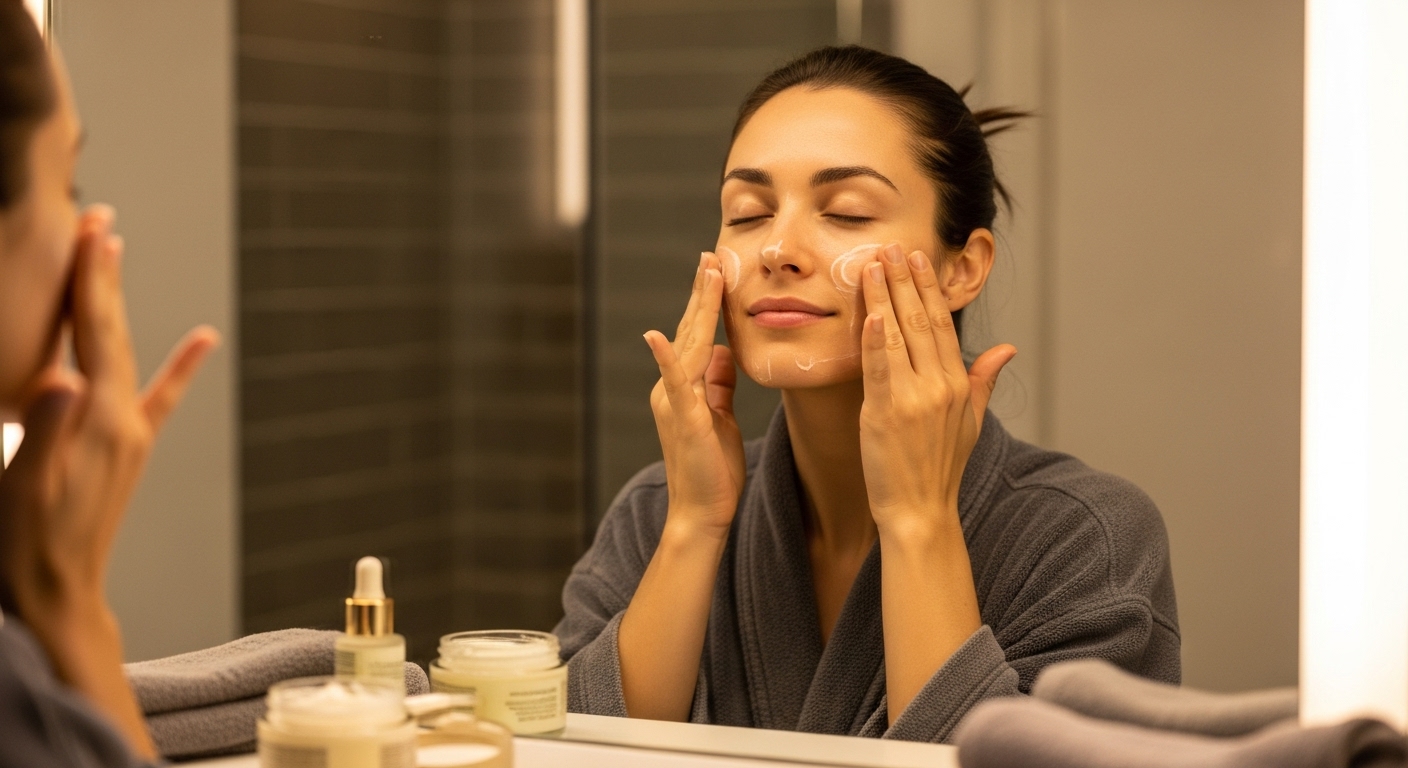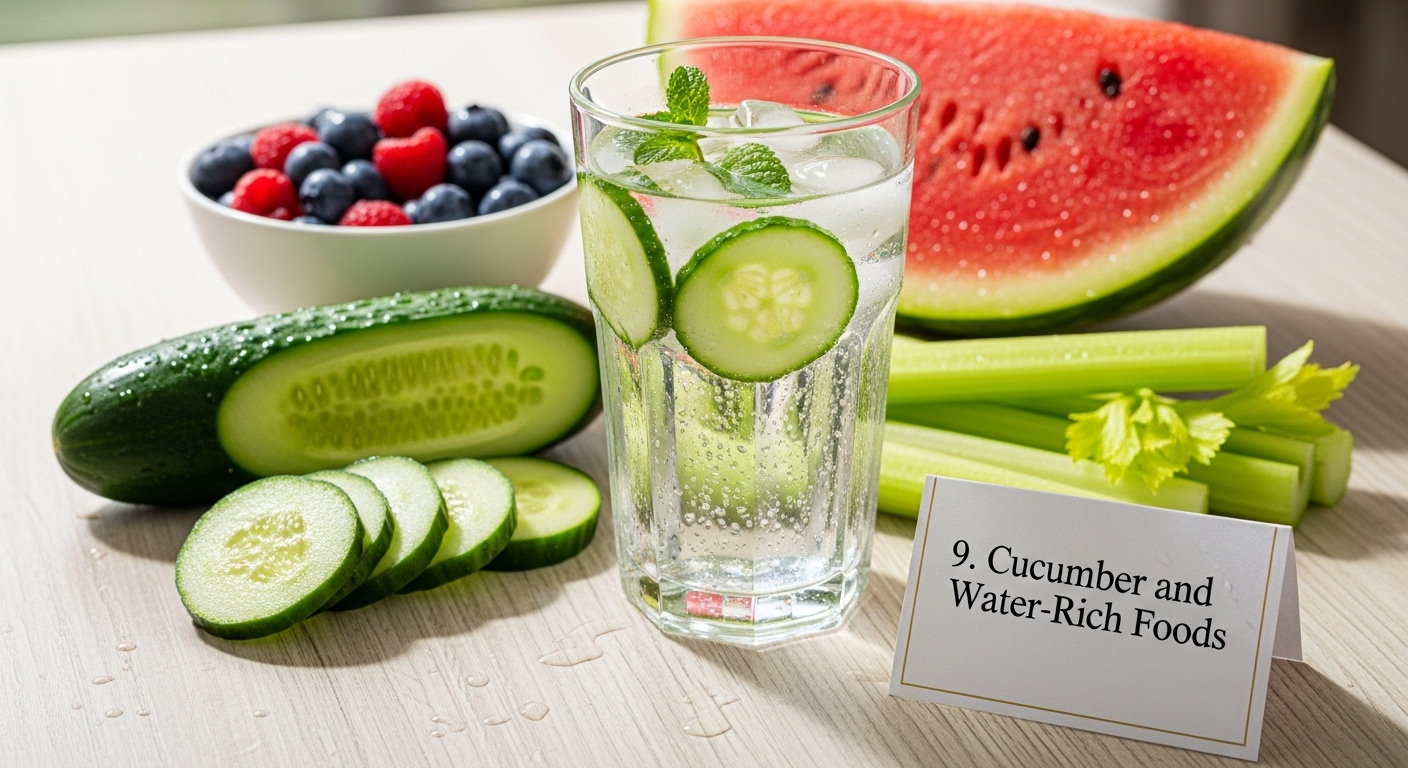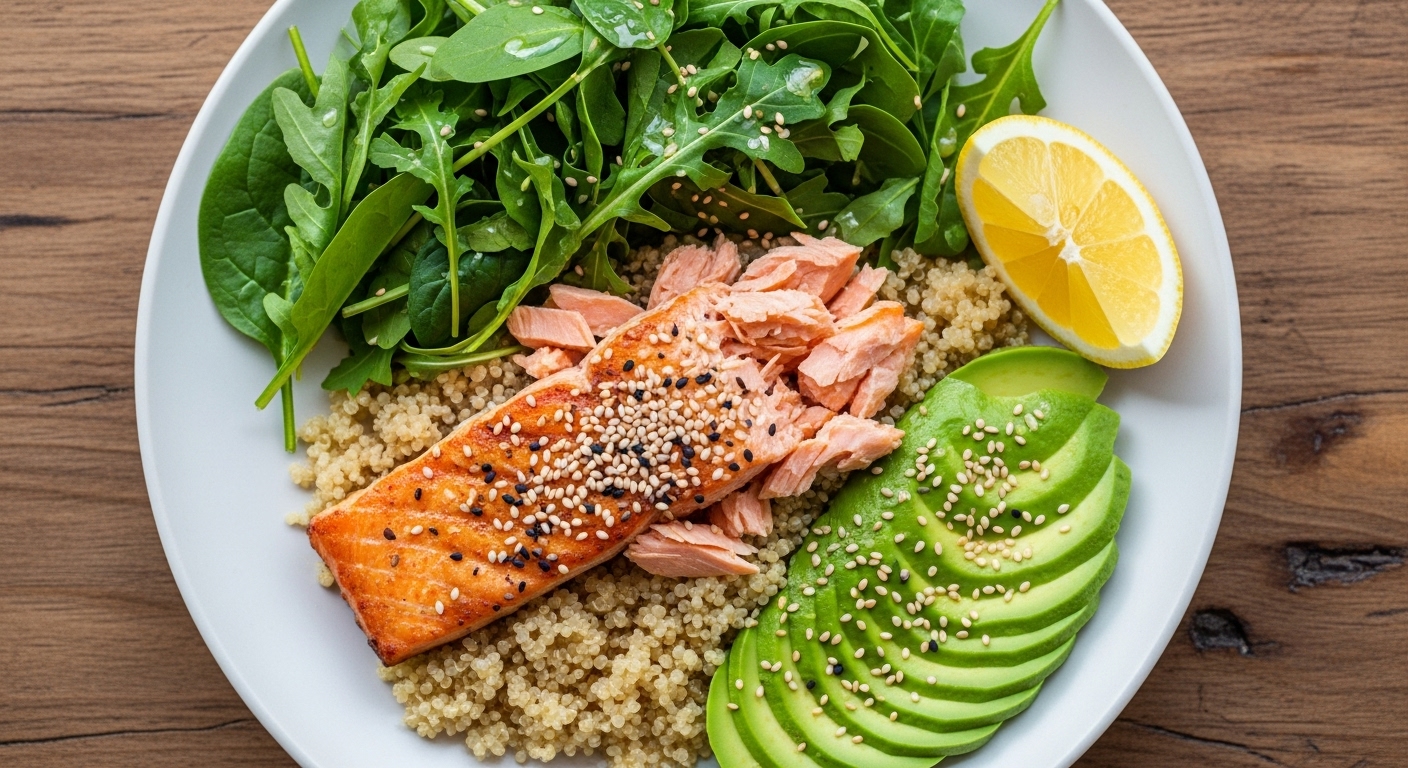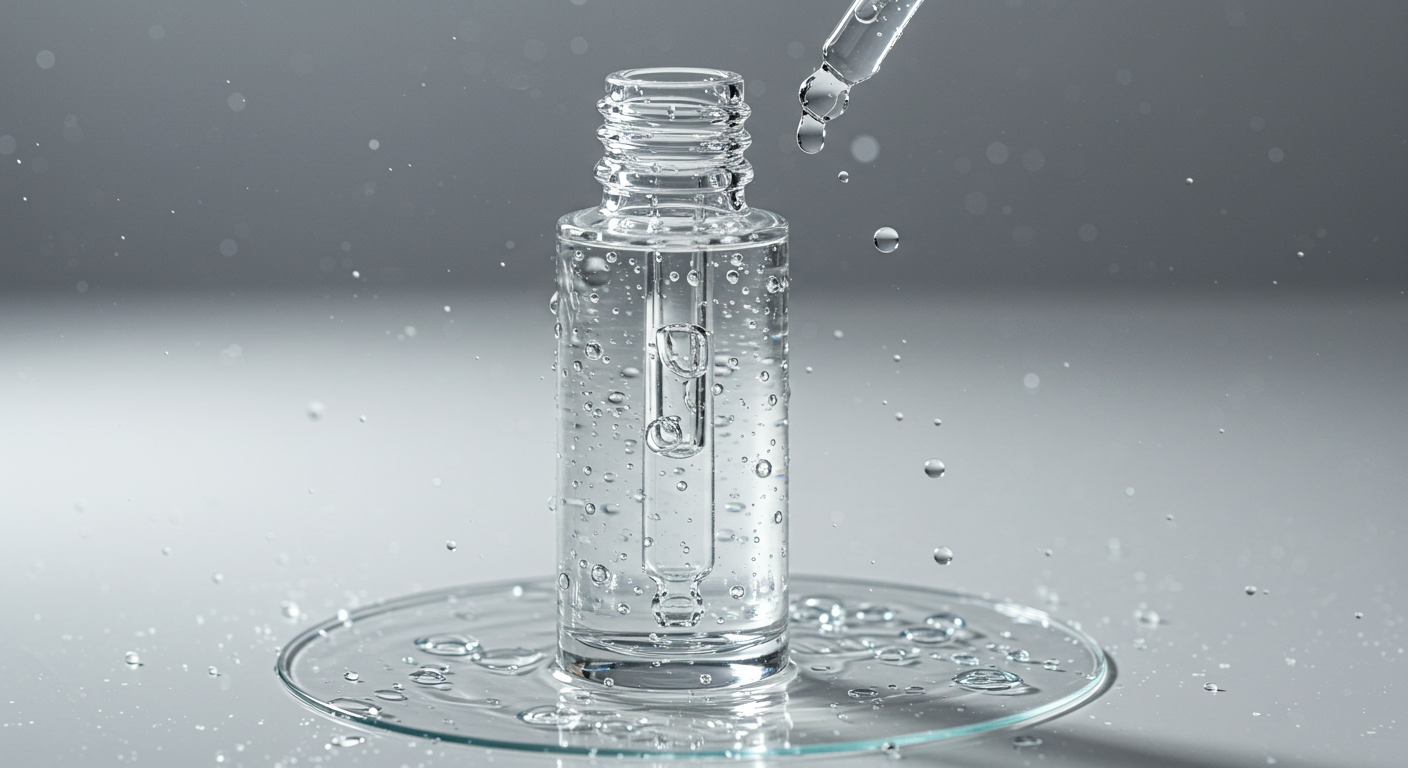Vitamin D supports bone health, boosts immunity, and even improves mood. Learn the best sources, daily needs, and how to prevent deficiency.
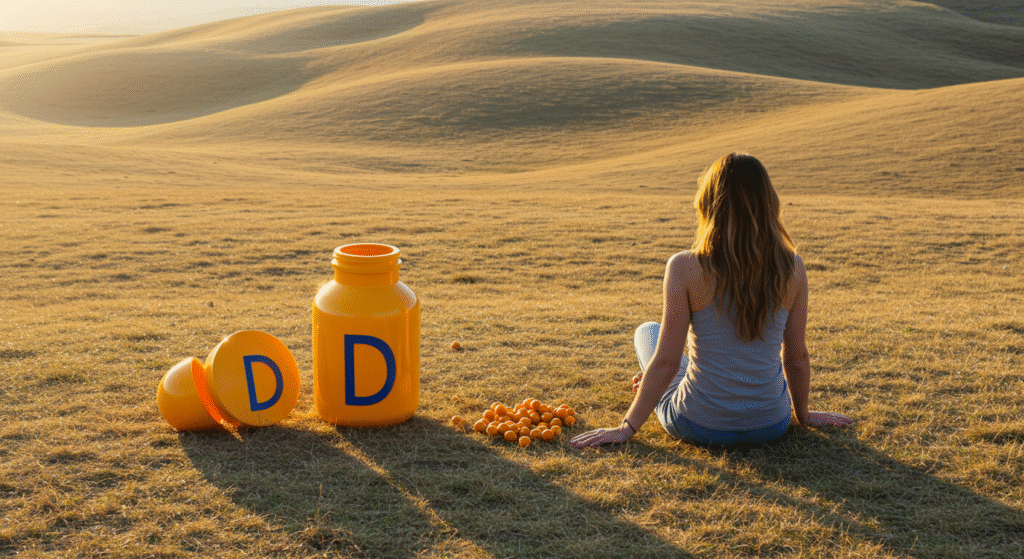
Why Vitamin D Is More Important Than You Think
Often called the “sunshine vitamin”, vitamin D is unique because your body can produce it when exposed to sunlight. Yet, millions of people worldwide are deficient—especially those who live in colder climates, work indoors, or wear sunscreen daily.
Deficiency can silently affect your bones, immune system, and even your mental health.
What Vitamin D Does in the Body
Vitamin D plays several critical roles:
- Supports bone health by helping your body absorb calcium and phosphorus.
- Strengthens immunity, reducing the risk of infections.
- Regulates mood and may help lower the risk of depression.
- Supports muscle function and helps prevent weakness in older adults.
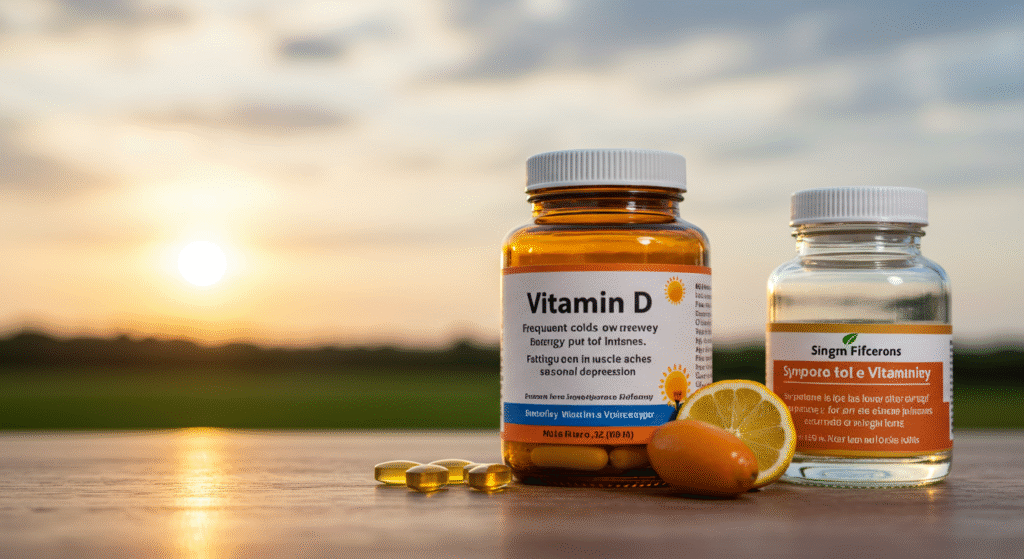
Signs You Might Be Low on Vitamin D
Mild deficiency often goes unnoticed, but symptoms can include:
- Frequent colds or slow recovery from illness
- Fatigue or low energy
- Bone or muscle aches
- Low mood or seasonal depression
- Hair loss or brittle nails
Blood tests are the most accurate way to confirm a deficiency.
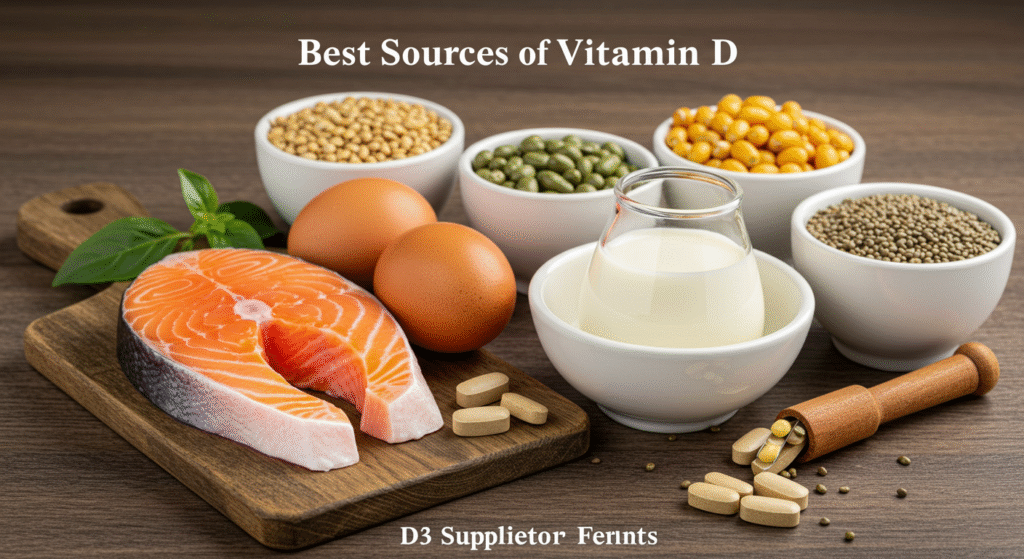
Best Sources of Vitamin D
You can get vitamin D from three main sources: sunlight, food, and supplements.
Sunlight:
Aim for 10–30 minutes of midday sun exposure a few times a week, depending on your skin tone and location.
Food Sources:
- Fatty fish (salmon, mackerel, sardines)
- Egg yolks
- Fortified foods (milk, plant-based milks, cereals)
- Mushrooms exposed to UV light
Supplements:
Vitamin D3 (cholecalciferol) is the most effective form for raising blood levels.
How Much Vitamin D Do You Need?
Recommended daily intake (RDI):
- Adults (up to age 70): 600 IU (15 mcg)
- Adults 70+: 800 IU (20 mcg)
- Some experts recommend higher doses, especially for those with limited sun exposure.
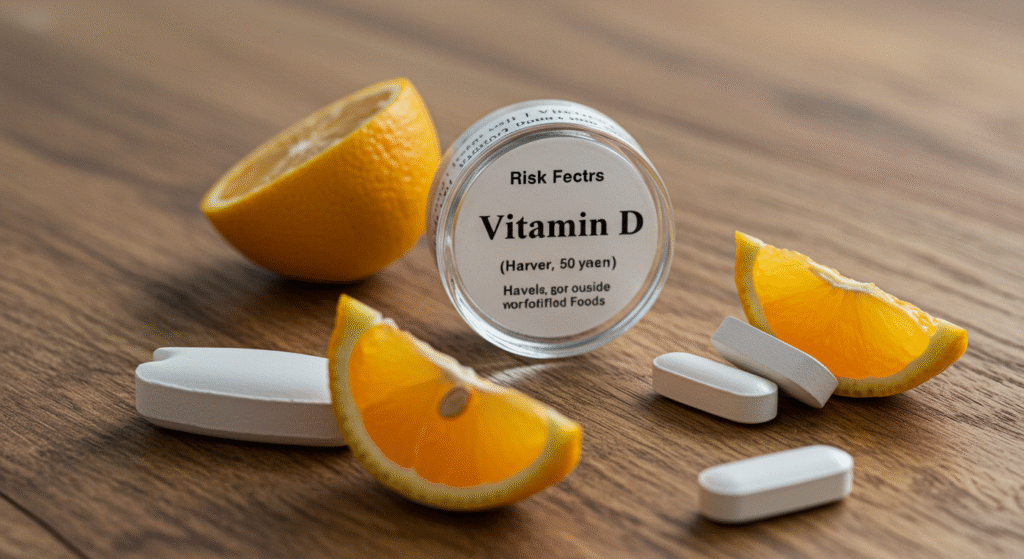
Risk Factors for Deficiency
You’re more likely to be low in vitamin D if you:
- Live in northern latitudes or have long winters
- Have darker skin (melanin reduces vitamin D production)
- Are over 50 years old
- Rarely go outside or always wear sunscreen
- Follow a strict vegan diet without fortified foods
Final Thoughts
Vitamin D might be small in daily dose, but its impact is massive. From keeping your bones strong to boosting immunity and mood, it’s a nutrient worth paying attention to year-round. If you suspect you’re low, get tested—and make sunlight, vitamin D-rich foods, or a quality supplement part of your wellness routine.



